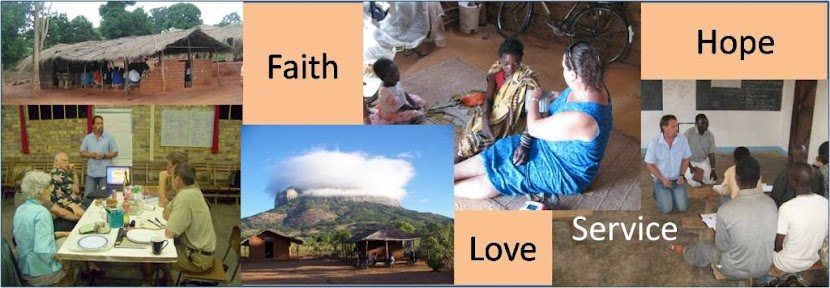"What is the DNA’s (Discipelin the Nations Alliance, on who's ideas Hope for Africa was founded) track record for the eventual self-funding of your programs by local leaders?"
Someone asked me that last week. It's a fair question, but it doesn't apply to the Disciple Nations Alliance because it presupposes a ministry approach we avoid.
Let me explain by quoting a dear friend, Randy Hoag, former president of Food for the Hungry. Randy has worked in international Christian ministry for over 30 years. Much of the ethos of the DNA can be traced to his innovative, biblical ideas about cross-cultural ministry with the poor. Here's what Randy said in a recent interview on Ministry Spotlight:
"One of the greatest lessons I learned during my career has to do with the importance of the process of development. Typically what happens with organizations [including local churches] is that they go into an impoverished community, see problems, and have an immediate idea of what needs to be done. These organizations typically have lots of resources (at least in the eyes of the community), and they feel the need--often with good intentions--to solve problems. So they design a project, find funding, and essentially do the project. Later on, they try to develop local leaders to take over the project so they can move on to other communities.
"What I found in practice, however, is that this doesn't work well. What works better is just the opposite. First, develop local leaders. Encourage them to do small projects with their own resources. This helps them build confidence and learn how to work together in harmony in the community. As they gain practice in that process, then it may be appropriate to bring in outside resources."
What Randy describes first is the default for most churches and organizations involved in ministry among the poor. Because the second model challenges this approach, it is not well understood. The Disciple Nations Alliance subscribes to this second, misunderstood model.
Through our Vision Conference, we start with local leaders and ideas—not with outside projects or money. We equip them to think more biblically about their critical role in developing their communities and nations. We help them identify and use their own resources, so that from the very beginning projects are locally conceived, owned, and funded. These "Seed Projects" are blessed by God, and many grow into significant local ministries.
I've seen the power of this approach and am convinced that it is not only far more effective, but more biblical as well.
- Scott Allen
